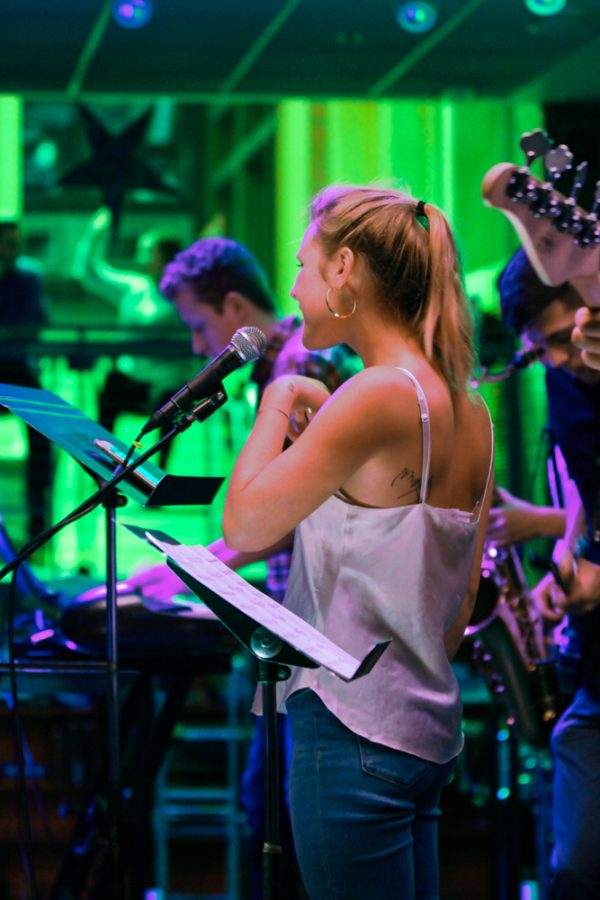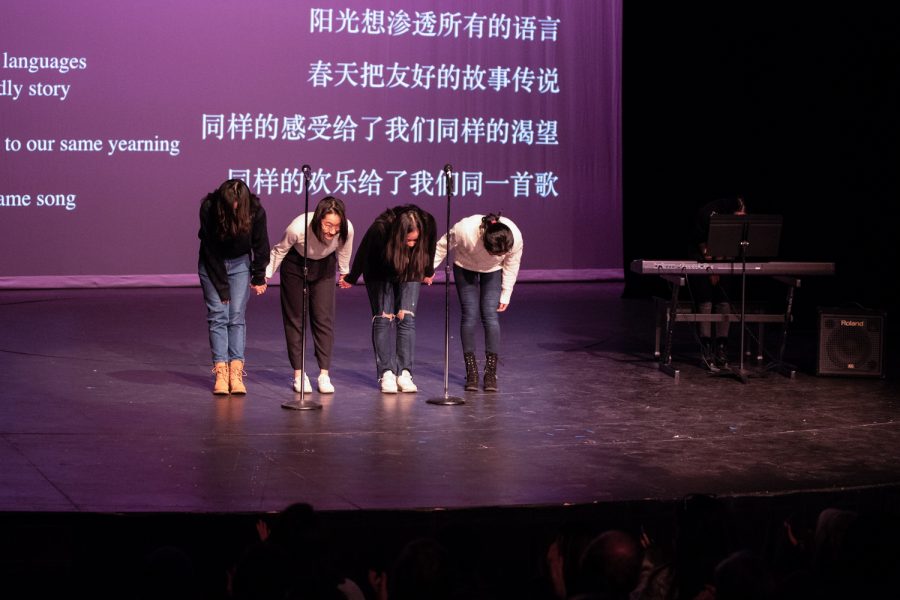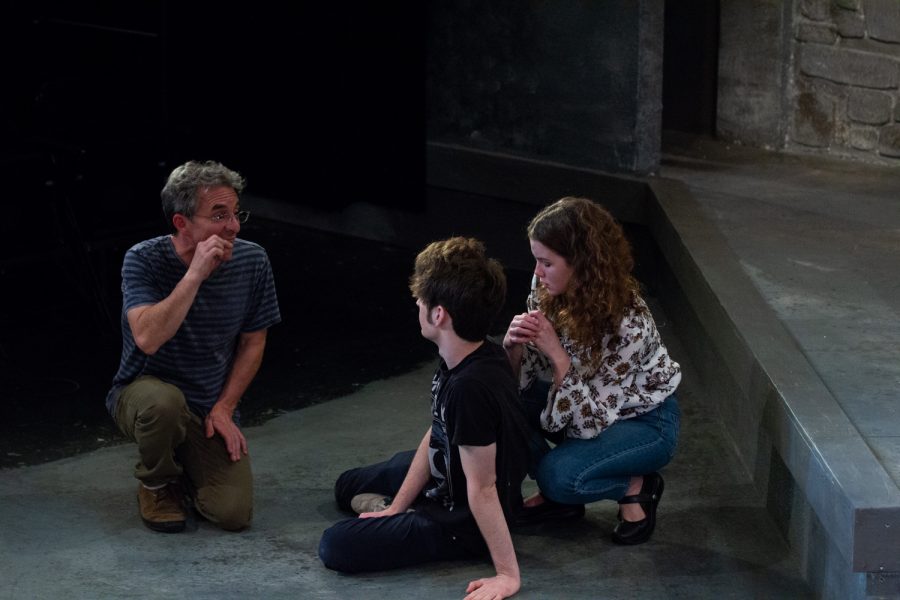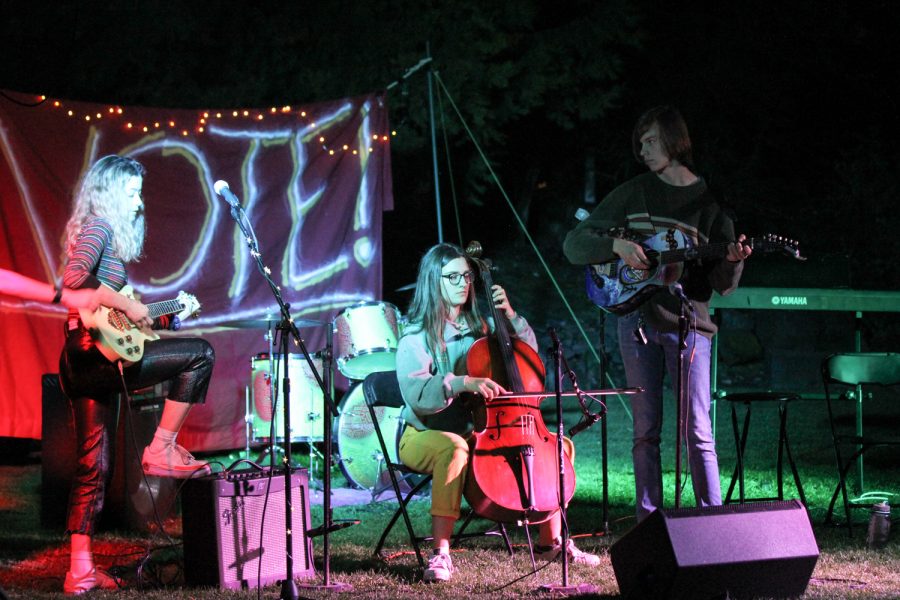The ubiquitous hammering of the construction crew, while previously a minor nuisance to theatre students and professors, has now become a present obstacle. The current Harper Joy Theatre renovations, which will provide updated space for classes and performances, also have the unfortunate side effect of making the Friemann “Black Box” Stage unavailable for the rest of the semester.
The “Black Box”, for many theatre majors and students invested in theatre, provides nearly around-the-clock performance space, which other spaces on campus lack.
“While there are a lot of places on campus with stage-like areas … there’s no place like the black box because it’s … small, readily available to students, and yet it has a backstage. It’s definitely a loss,” said junior Theo Pratt, who relied on the space for his play “Moments Before Death”.
Student shows like Pratt’s, dubbed “Lunchboxes”, provide an extra creative outlet for students interested in theatre outside of Harper Joy’s seasonal shows. Lunchboxes are typically half an hour long and vary from “Waiting for Godot” scenes to the student-written skit “Facebook: The Lunchbox”. These plays take place during the noon lunch hour, and students on a meal plan can sign up to have a brown lunch bag delivered to them prior to the show.

Senior Elizabeth Berg, one of the Drama Club’s Lunchbox coordinators, describes some of the perks of lunchbox shows.
“A lunchbox can be anything you want it to be … you don’t have to worry about logistical issues like lights and sound,” said Berg. “This gives people to chance to focus on the show itself and hone their skills. You also get the opportunity to see variety and student-produced, student-worked shows, which is exciting.”
Both Berg and Pratt said the Black Box’s intimacy and adaptability of its stage enhance Lunchbox shows.
“The action takes place right in front of the audience, which is not true for a main stage show,” said Pratt.
“It’s a very flexible space because there is no real ‘stage’, no big backdrops or curtains. You can make it into anything you want it to be, and there’s a lot of freedom in that,” said Berg.
Unfortunately, Lunchbox shows will now have to work with a new space. Berg states that though she will help students find available spaces, there are some limitations.
“We’re going to have to [schedule shows] on a case-by-case basis. We’ll have to find another space on campus, [but] a non-theatre building is on its own schedule and may not be able to find time or have the suitable space for a student production,” said Berg.
While Kimball Theatre and Maxey Auditorium can support some productions, such as the annual “Rocky Horror Picture Show” and Varsity Nordic shows, Pratt believes that the availability of the Black Box space is hard to replace.
“One of the main things it has that people can benefit from is kind of more impromptu, last-minute shows. It’s simple, it’s right there and available. You can’t do [those shows] in other spaces as well.”
Nevertheless, Berg encourages students to attend Lunchbox performances or, if they have an idea, large-scale or small, to sign up for a Lunchbox slot.
“It’s a great way to go,” said Berg. “A year ago I directed a Lunchbox scene and it helped me hone my skills as a director, which can help people take on more ambitious projects later. It’s a great way for students to get their feet wet without the tremendous pressure of a main stage show.”















